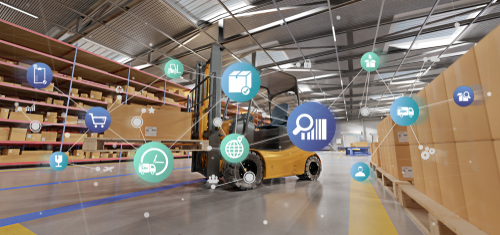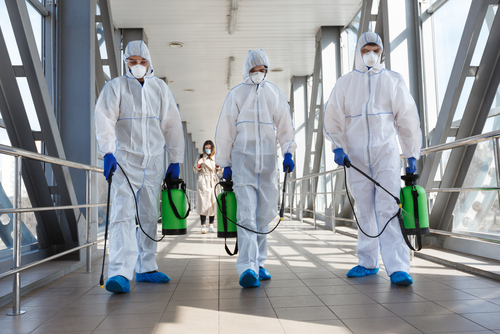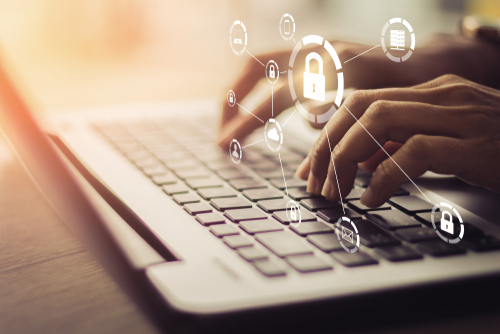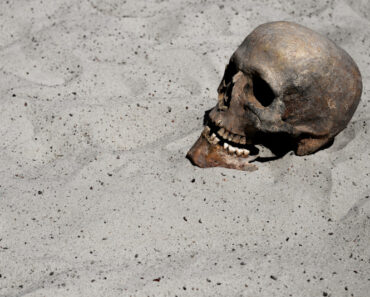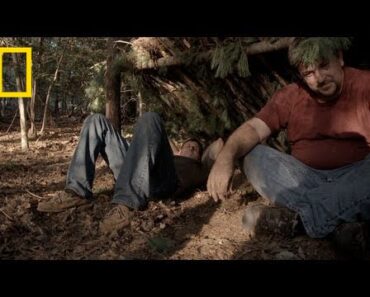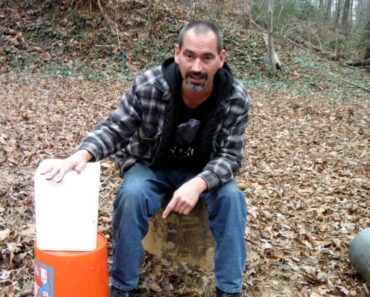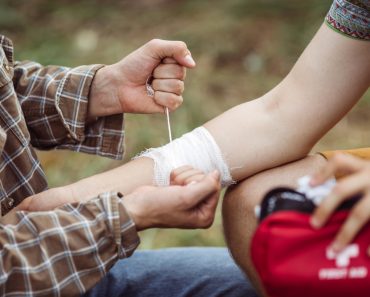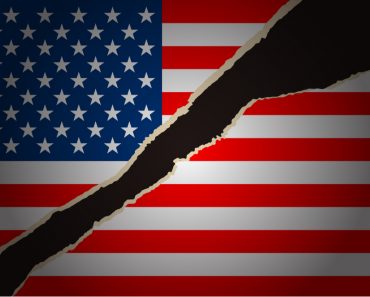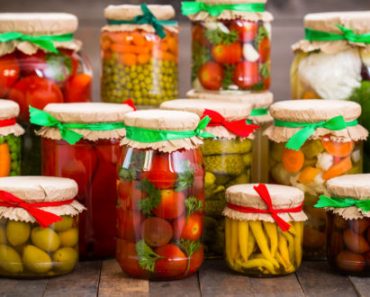As the last year draws to an end and the new year begins, I always like to look back over the previous year, seeing what lessons I can learn.
I also like to look forward, seeing what I need to do, in order to prepare myself for the year to come. While these activities can be undertaken at any time, the start of a new year seems to be an excellent time to do so.
With 2020 having been such an interesting year, filled with disasters and problems, it seems even more appropriate to take a moment out to review the year, seeing what we can learn from it and better prepare ourselves for whatever might be coming next.
I find it funny that so many people think that everything will be fine, once 2020 is over and 2021 begins. But last I checked, disasters don’t pay any attention whatsoever to our calendar. They operate on their own time frame and we have to adjust to it. We call it “hurricane season” not to tell the hurricanes when they can come, but to remind ourselves that we’re in the time of year when they do come.
So as we start into 2021, I’m not expecting that the disasters of 2020 will come to an end. It would be nice if that happened, but I’m not planning on it. Rather, I’m planning on more disasters for 2021. Whether they will be as bad as those of 2020 is yet to be seen.
It Always Takes More than You Think
The big news of 2020 was the Coronavirus pandemic. While this wasn’t the first time that we’ve faced a pandemic, it ended up being considerably more serious than anything we’ve faced in recent years. The Ebola outbreak of 2014 could have been worse, but it didn’t go around the globe as COVID did.
Having been around in 2014, I had purchased PPE for use in that pandemic, just in case, it reached the United States. So when COVID-19 hit our shores, I thought I was ready. But, while I did have PPE in my stockpile, I had grossly underestimated how much I’d need. What I had barely made it through the first couple of months, and then I was making my own, as it wasn’t available.
I’d have to say that the disasters we are not accustomed to dealing with are the ones where we need to be even better prepared. A lot of the reason why I didn’t have enough PPE is that I had never dealt with a pandemic before. Due to my lack of familiarity with the situation, I didn’t really have any idea of how much PPE or cleaning supplies I’d use on a daily basis. Nor did I have any idea how long the pandemic would last. Therefore, unlike some other things, I hadn’t calculated how much I would go through. Oops.
Our Supply Chain is Extremely Fragile
One of the more surprising things about the pandemic was how the grocery stores emptied out. Along with many others, I’ve talked about how the grocery stores would empty out in the event of a major disaster; but I was still surprised how bad it happened. First, the shortages started because of panic buying before the pandemic even hit. And secondly, how hard it was for the system to catch up and restock those stores.
But if all it takes is fear for a run on the stores, then we should be ready for such a thing to happen anytime. When you consider how much the news media is bent on fear-mongering, a panic could happen at any time. The fact that it already happened once just means that people won’t wait the next time; they’ll rush to the stores at the first sign of trouble.
Up until now, the idea of restocking the grocery stores doesn’t fit into most TEOTWAWKI events. But the COVID pandemic proved that it might be possible to have a major disaster and see the supply chain restore itself. It takes time; but as long as communications and transportation are in place, it is possible for the stores to restock.
Don’t Believe what Others Say
A fair chunk of the problems we’ve had in dealing with the pandemic, as well as the shortages in the stores, have been caused, at least to some extent, by the news media. As with everything else in the last four years, the mainstream news media has spun the COVID-19 pandemic, in an effort to make President Trump look bad. So, they’ve exaggerated the severity of the disease, focusing on how many people have died. While this was “honest reporting” in the sense that they were using real figures, it was dishonest in their focus. As per normal, they were cherry-picking figures to make the administration look bad, not telling the whole story.
In reaction to this, most of the right-wing news sources were downplaying the severity of the disease, leading many conservatives to believe that the disease wasn’t any more serious than the seasonal flu. We’ve ended up with a lot of conservatives who are fighting against even conservative governors, using numbers that were out and out wrong by any stretch of the imagination.
We’re living in an age where you can’t believe what comes out of any news source. We are no longer receiving news, but news commentary. Those on the right are more honest about this, telling us that what they are giving us is commentary. But what’s coming out of the left is just as much commentary, even though they are labeling it as “news.”
In order to have at least somewhat accurate information, we need to look to apolitical sources, which are almost impossible to find. In the case of the pandemic, the best is going right to the CDC’s website. In the case of hurricanes, it’s going to the National Hurricane Center’s website. Similar sites exist for other categories of disasters.
Always Have an Alternative
With all the shortages we’ve seen in 2020, we’ve got a pretty good idea of what to expect in any future disaster. Supplies will always be limited at any time of the disaster; especially of the things we need the most. We need to have an alternate plan in place when those things run short.
During COVID, I’ve made my own masks, hand sanitizer, and a replacement for Clorox wipes (my wife’s favorite cleaner). Had I not been able to do this, we would have ended up putting ourselves more at risk, especially early on, when everyone was trying to buy them and there wasn’t enough.
Taking this idea a step further, we should all have a good idea of how to make everything from soap to gunpowder, as well as either having a stock of the necessary materials or knowing where to find them in nature. That’s going to become critical if we’re ever faced with a true TEOTWAWKI event.
Disasters Don’t Just Come One at a Time
Every prepping and survival writer I’ve ever read deals with one disaster at a time, just like I have. But if there’s anything we’ve seen in 2020, it’s that disasters are bullies; they like to gang upon us. Often, one disaster will bring on another, such as we’ve seen happen in the last year. What started out as a pandemic, quickly led to various kinds of shortages in the stores, businesses shutting down, people losing their jobs, and a fast-moving financial crisis.
In the future, it would make sense for us all to be thinking in terms of dealing with multiple crises at one time. While we may only be faced with one at a time, I’d rather train for the worst-case and deal with something better, than train for a best-case and not be ready with something more serious.
Be Flexible – Roll with the Punches
Many people were devastated by the events of 2020. But others seemed to weather it just fine. For me personally, it has been a good year, in spite of everything that has happened.
How can I say that? Because I’ve made the most of it. I work from home anyway, so that wasn’t a problem. But the pandemic caused my wife to have to work from home for seven months as well. While we both worked and worked a lot, it became something like an extended honeymoon for us.
Granted, we’ve had to make a lot of changes in the way we’ve done things; which is why I say to be flexible. Being able to not only survive but make the most of a situation, often requires nothing more than a change of attitude. Look for opportunities, rather than focusing on the problems. That will turn what’s bugging everyone else into a blessing for you.
The idea of “rolling with the punches” comes from boxing. The idea is that if you can’t avoid getting hit, then do whatever you can to lessen the impact of the hit. Whether that means changing the angle of your body, moving away as you are getting stuck, or turning at the last moment so that the glove doesn’t hit a particularly vulnerable area, the idea is to avoid receiving harm. Flexibility and the ability to react to whatever is happening will lessen the impact of a disaster too.
Take Computer Security Seriously
Before all is said and done, I think the biggest disaster of 2020 is going to be the hacking of SolarWinds network software. Experts are still working overtime to ascertain the seriousness of this attack and it might be months before we fully know how bad it is. It might be many more months or even years before the problem is fixed.
In the meantime, some 18,000 government organizations and businesses have had their computer networks hacked. Countless terabytes of information have been copied and are now in the process of being analyzed by the hackers. In some cases, it appears that they might have gotten so far inside the systems, as gaining the ability to take control of them. In others, they have created other, hidden, back doors, which they can use for continued access into those networks, even after the leaks are plugged.
The amazing thing, at least to me, is that the hackers haven’t yet done anything malicious with the access they had. Perhaps it was nothing more than an information-gathering exercise. Still, it appears that they were far enough inside, in some cases, that they could control such things as our electric power grid.
While the information that you and I have on our personal computers isn’t all that critical, many of us work for companies that do important things and have important information on their systems. Yet we tend to fall asleep during those boring security briefings, thinking that it’s not our problem. It is, even if we don’t want to acknowledge that. It’s everyone’s problem, as the SolarWinds hack is going to show.
Just like identity theft, most hacking requires a human element of some sort. You and I are the vulnerable links in our online security and the online security of the companies we work for. If we don’t understand how to minimize that risk, we will most likely become part of something going seriously wrong.
When You Think You Can Finally Take a Sigh of Relief, Look Again
There have been many a meme on social media, pointing out the concept of the “disaster of the month” that has plagued us all year long. While intended to be humorous, these memes can teach us a valuable lesson; they need to stay aware, looking for the next disaster coming down the pike. It’s quite possible that the one we don’t expect will be the one we receive.
As preppers, it’s important that we are constantly on the lookout for what’s happening in the world and aware of how those things can turn into problems. Our failure to do that puts us in the same category as all the sheeple out there, who just aren’t paying attention. Oh, we’ll still have out stockpiles; but that’s it. Without the awareness to look for advance warning, we won’t be able to take the necessary action to protect our families. Worse than that, we’ll miss the opportunity to bug out early, when we need to.


